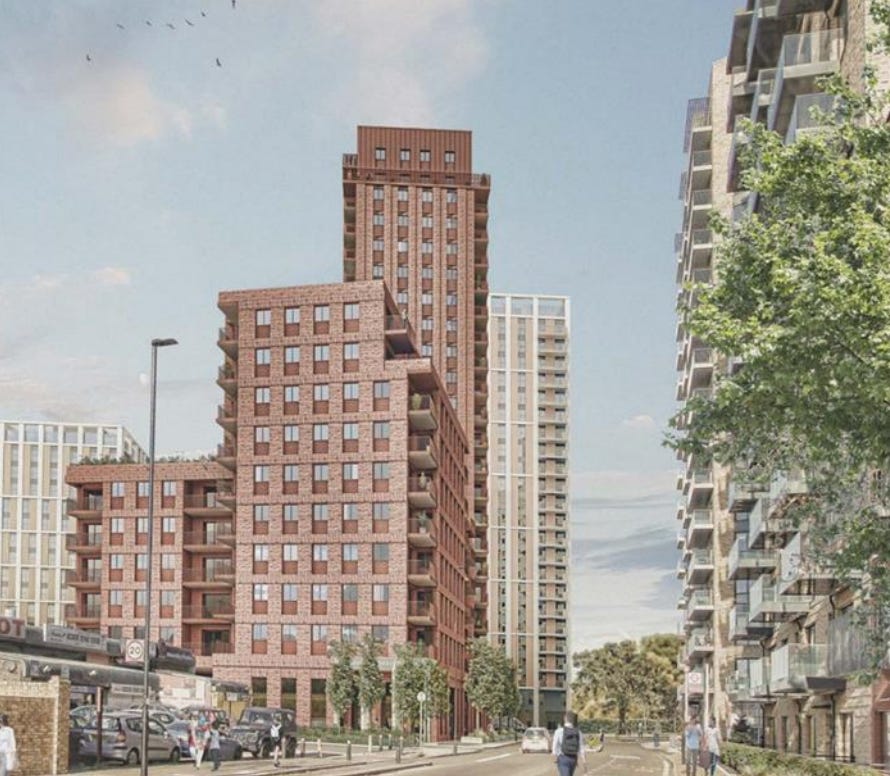Car-free living envisaged by new Ealing development
New 22-storey development on the Southall Community Centre site would have 405 bike parking spaces but none for private cars
Residents of a proposed new development in Southall would be denied car parking spaces or applying for parking permits in current or future parking zones, according to a planning application to be considered by Ealing Council’s planning committee next week.
The plans for the site of the Southall Community Centre envisage a series of towers from six to 22 storeys including 215 rental flats. The flats would include 20 studios, 90 one-bedroom flats, 72 two-bedroom flats and 33 three-bedroom flats.
The plans state that only 35 flats, 19 percent of the total, would be deemed affordable, less than the 35 percent normally demanded of all developments. The developer on the initial application is Diamond Property London Limited.
The plans include 405 cycle-parking spaces and four car-parking spaces for the disabled but no parking spaces for private cars. Furthermore, residents would not be allowed to apply for parking permits and visitor-parking vouchers in surrounding areas.
Normally, new developments include car-parking spaces at the ratio of 0.3 to each dwelling space. In the nearby Green Quarter, plans include a maximum of 1,670 car-parking spaces. At the same ratio, the Southall Community Centre site would require 65 spaces.
According to the planning documents: “Transport Services and Transport for London have assessed its (the car-free development) potential implications for the highway network in the locality and consider it acceptable subject to conditions and financial contributions towards a footbridge over the railway line, improvements to nearby junctions, footway improvements near the site, bus stop improvements, traffic calming measures, review of the existing car parking zone, improvements to cycle infrastructure near the development and bus capacity improvements.
”The site is located in an area of very good public transport accessibility and, with the conditions and planning obligations agreed, including a restriction on resident parking permits, any potential impacts arising from the proposal will be satisfactorily mitigated.”
This suggests that the possibility of living in the new development would be difficult for anyone who requires a vehicle for work, families and people who are not able bodied. Furthermore, residents would not be able to respond to a change in their circumstances by acquiring a vehicle.
This might be acceptable if we all live in a world that is serviced by autonomous taxis which has been long forecast but still feels a distant if not nigh impossible reality. While cycling, walking and public transport are great for health and the environment, they do not provide a solution for every transport problem.
The public consultation received 46 representations, 26 in support and 22 objections. The planning committee meets on 23 July.






